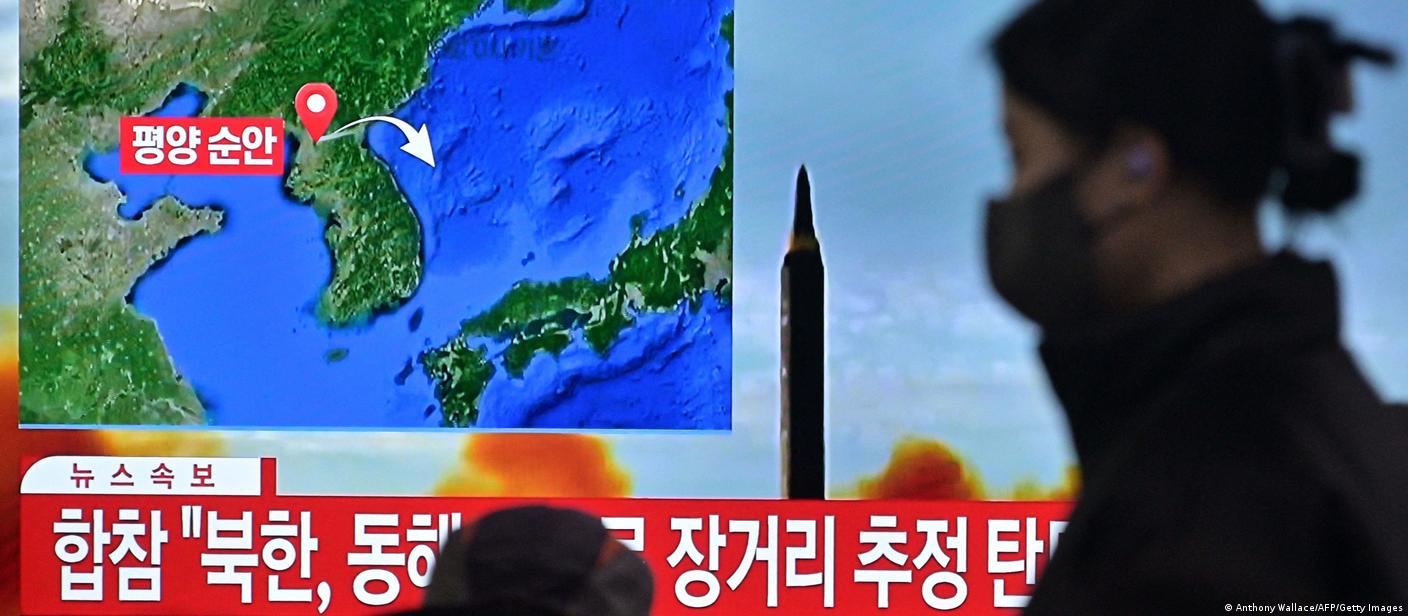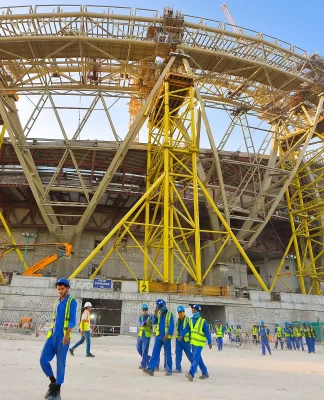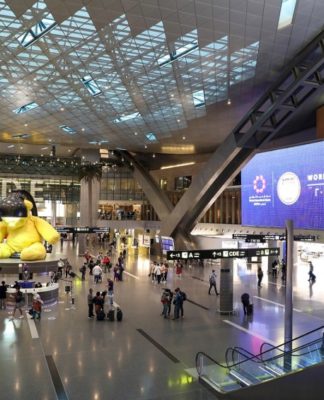CONFLICTSNORTH KOREA
North Korea fires long-range ballistic missile into sea
7 hours ago7 hours ago
A suspected long-range nuclear-capable ballistic missile fired from near Pyongyang has landed in waters off Japan. North Korea threatened a response to planned military drills by the US and South Korea.
https://p.dw.com/p/4NgOL
North Korea launched a suspected intercontinental ballistic missile (ICBM) on Saturday that landed in Japan’s exclusive economic zone, the Tokyo government said.
The test came after Pyongyang warned of an “unprecedentedly persistent, strong” response to planned joint military drills by the United State and South Korea.
Pyongyang “fired one ICBM-class ballistic missile toward the east. It flew for about 66 minutes,” chief government spokesman Hirokazu Matsuno told reporters.
He said the missile flew an estimated 900 kilometers (560 miles), reaching a maximum altitude of 5,700 kilometers, and is believed to have landed at 6:27 p.m. local time (0927 GMT).
Japan, US, G7 officials protest Pyongyang’s latest test
Matsuno said Japan had lodged a protest through “diplomatic channels.”
“The government will respond by coordinating closely with the international community including the US and South Korea through the ongoing Group of Seven (G7) foreign ministerial meeting and the UN Security Council,” he added.
Tokyo said there were no immediate reports of damage to ships or airplanes.
Later Japanese Defense Minister Yasukazu Hamada said the missile seemed to have a 14,000-kilometer range that could reach the US mainland.
The foreign ministers of G7 said in a statement after meeting on the sidelines of the Munich Security Conference that the act was “in blatant violation of UN Security Council Resolutions (UNSCRs), and threatens regional and international peace and security.”
“North Korea’s reckless behavior demands a unified response by the international community, including further significant measures taken by the UN Security Council,” they added.
The White House said in a statement that the “launch needlessly raises tensions and risks destabilizing the security situation in the region.”
The statement added that the US would take “all necessary measures to ensure the security of the American homeland and Republic of Korea and Japanese allies.”
Saturday’s missile launch was the first by Pyongyang since January 1 and took place from the Sunan area, where the isolated country has conducted most of its recent ICBM tests.
2022 saw North conduct several tests
Last year, North Korean leader Kim Jong Un ordered the firing of an unprecedented number of missiles, including ICBMs capable of striking anywhere in the United States and has also restarted plans for its first nuclear test since 2017.
Kim Jong Un joined by daughter at massive military parade
02:17
State media video footage from a military parade last week suggests the North has created a military unit tasked with operating new ICBMs, in line with its recent restructuring of the army.
The parade displayed more ICBMs than ever before, including a possible new solid-fuel weapon, which could help the North deploy its missiles faster in the event of a war.
Pyongyang’s ballistic missile and nuclear weapons programs are banned under United Nations Security Council resolutions.
But the North’s leaders say the weapons development is necessary to counter “hostile policies” by Washington and its allies.
US-South Korean military drills expanded
South Korea’s Defense Ministry said Friday that Seoul and Washington will hold annual computer-simulated combined training in mid-March.
The 11-day exercise would reflect North Korea’s nuclear threats, as well as unspecified lessons from the Russia-Ukraine war, an official said.
The two countries are also due to conduct joint field exercises in mid-March that would be bigger than those held in the past few years.
Pyongyang has traditionally described US-South Korea military exercises as rehearsals for a potential invasion, while the allies insist that their drills are defensive in nature.
The two allies had downsized or canceled some of their major drills in support of former US President Donald Trump’s diplomatic efforts with Pyongyang.
But North Korea’s growing nuclear threats have raised the urgency for South Korea and Japan to strengthen their defense postures in line with their alliances with the United States.
In December, Japan made a major break from its strictly self-defense-only post-World War II principle, adopting a new national security strategy that includes preemptive strikes and cruise missiles to counter growing threats from North Korea, China and Russia.
rm, mm/kb (AFP, AP, Reuters)






























